The Far North Region of the Republic of Cameroon is the northernmost constituent Area, threefold victim of phenomena such as the Islamic sect Boko-Haram, the Covid-19 pandemic and most importantly the devastating effects of climate change.
Our mission, (fully funded by Global Youth Mobilization and conducted by YUNIBF in early June 2022), took us to the village of Mora in the Mandara Mountains in the far west of the Mayo-Sava Division which is home to the “Kirdi” people. Down there, I witnessed an unexpected climatic situation with serious effects on the environment and human development.The month of June, previously a cool, rainy period characterized by intense rural activities such as farming maize, millet, sorghum, cotton groundnuts…(the main occupation of the indigenous population of the region), is no longer identified as such and that is the observation my team andI made during our sojourn in the Mayo-Sava Division.
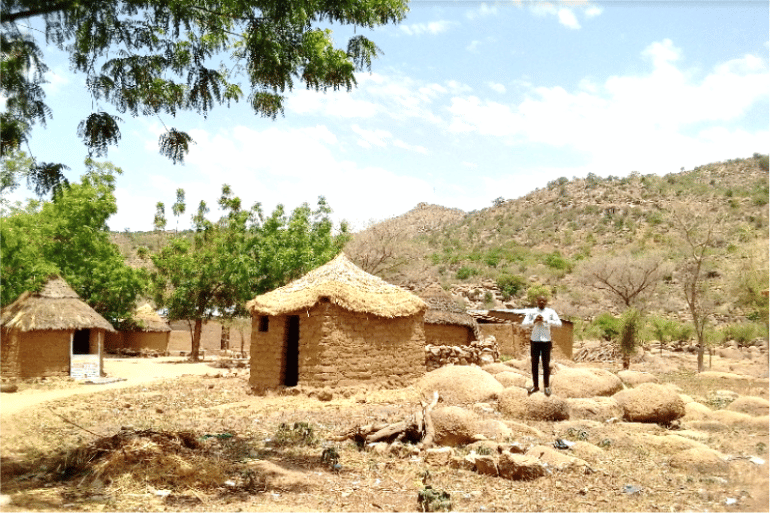
The period of our stay was characterized by a strong heat wave reaching 48 degrees Celsius and a rarity of rain ever recorded so far. This year, the area had experienced its very first rain at the beginning of April, thus simulating its early return. This risky simulation was going to deal a hard blow to the population, for it will unfortunately have them misled. In other words, there will be no rain until mid-June (months later), when farmers had rushed to go and sow immediately after the first rain of the year. Lady rain will not return, jeopardizing hundreds of tons of seeds underground, destroyed by a fiery and merciless sun. More than 80 percent of seeds will die from lack of water. The heat is scorching, water is becoming scarce, the lakes are drying up, drought is intensifying, food reserves are dwindling and fear of the worst intensifies. That situation is likely to increase food crisis, malnutrition, environment destruction, and school disruption in the short term. Climate change effects are even threatening peace and harmony in the community and can force millions to move southward in the long term if nothing is done.
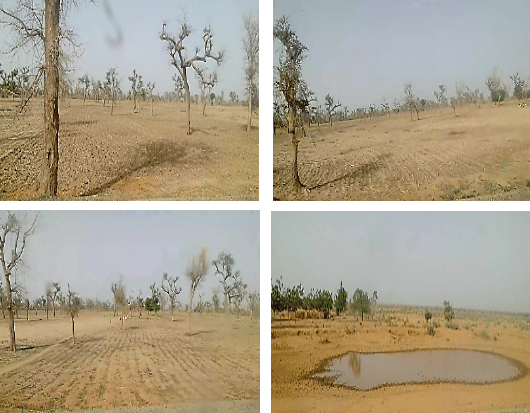
On a mission in the area to empower indigenous populations in tackling the phenomenon, my team and I collaborated with the local authorities towards inclusive, sustainable and achievable solutions. To this end, an awareness, training and action program has been jointly developed and implemented. As a result, “30 young girls and boys plus 300 women and men from the indigenous community” (YUNIBF 2022) have been identified, trained and called upon to carry out actions which included the promotion and protection of the environment; the planting of plants, the use of improved hearths in order to preserve trees, avoidance of slash and burn and moreover, the practice of smart agriculture to deal with the threat about food crisis or children education. In this regard, Kourbe Mahama, an indigenous girl from a family of farmers said: “with no income from the farming activities, my educational future is uncertain. When out of school, young girls like me are forced into early marriages. Knowledge on smart agriculture can help us adapt to climate change”.
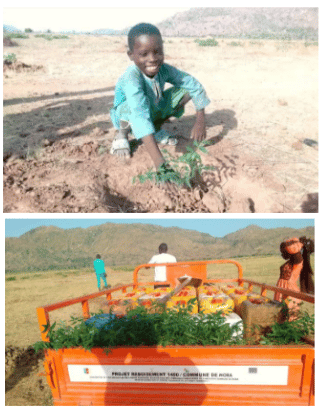
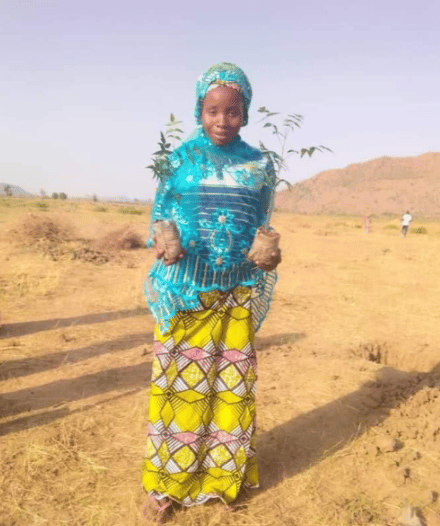
“With no income from the farming activities, my education future is uncertain. When out of school, young girls like me are forced to early marriages. Knowledge on smart agriculture can help us adapt to climate change”.
The population has also been empowered in working with local institutions towards participating in decision-making processes with regards to climate change related issues. Zaké Boukar, the acting Mayor of Mora welcomed the collaboration with indigenous representatives and asked for more actions to tackle the climate crisis in his region.
In addition to those actions, we have been able to provide financial support to the community’s farmers to leverage the loss of seeds damaged by the lack of rain. Aboubakar Abou, the indigenous community’s representative stated that: “Given the current situation, we can no longer expect anything from what we sowed 45 days ago without water. We are compelled to provide other seeds for a possible return of rain. The thing is that we can do it for all in the community”. This statement illustrates how important compensation for Loss and Damage is critical for vulnerable communities facing climate crisis.
In three days of activities, we attempted and implemented solutions that safeguard hopes that humans can sustainably live and develop in that becoming hostile area. Yet, more needs to be done.
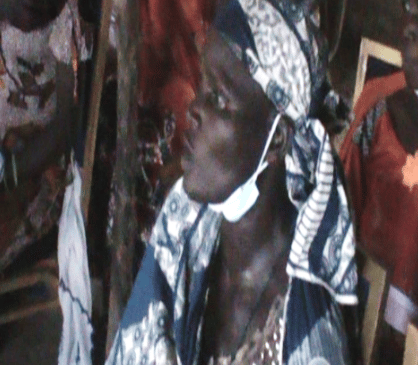
“Once upon a time, I could find wood just Behind my house to cook with. Today, I have to go far away, running the risk of encroaching On someone’s property. I understand that we need to plant more trees, but how can we avoid cutting them down when we are 100% dependent on wood to cook
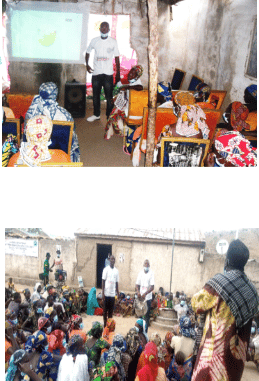
Though our actions have significantly impacted the target community, they still remain very limited to reach satisfaction. Consequently, national governments and the international community must fully commit to take appropriate and urgent actions by providing direct solutions to victims or supporting NGOs such as “Loss and Damage Youth Coalition” (LDYC) which has made loss and damage a top priority so far. This is a right and should not be seen as a favor, considering some related conventions and other relevant legal instruments in this domain, calling on the developed countries (being the biggest polluters), to financially support developing countries to compensate for the loss and damage.
However, action must be taken now. COP27, fundamentally, is an appropriate platform to advance the cause of loss and damage. Hopefully the missing voices will be heard.
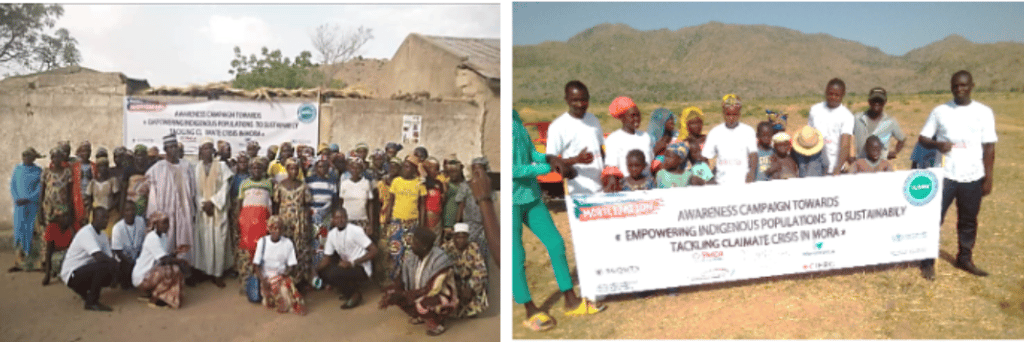
″We belong to the family of humanity, we have the right to life and the right to a livable, secure and sustainable environment. We have been living in our land for centuries, we do not want to become climate refugees by tomorrow. Help us stay home! ″ (Indigenous Moura message to cop27 presidency)